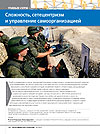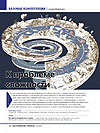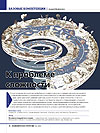Network Revolution
The article analyzes phenomenon of overall spreading of networks structures in the modern post-industrial society, called the network revolution. Namely network structures based on voluntary co-operation and partnership are becoming the most efficient form of organizing social communities in today’s highly competitive and dynamic social environments. They have advantages over previously prevailing hierarchical structures, as pooling of resources, knowledge and spiritual efforts of people in the network structures provides synergistic effect.









